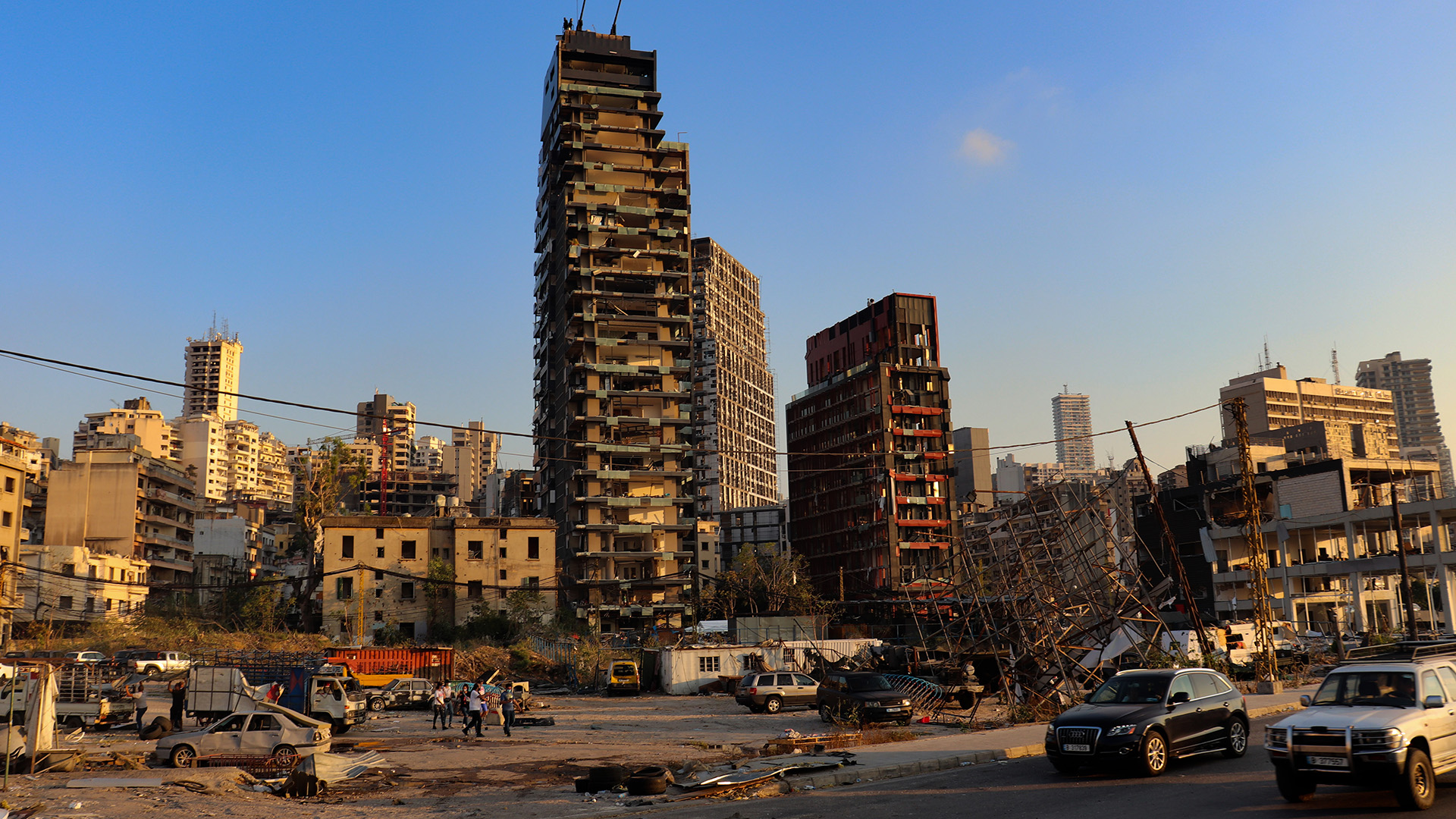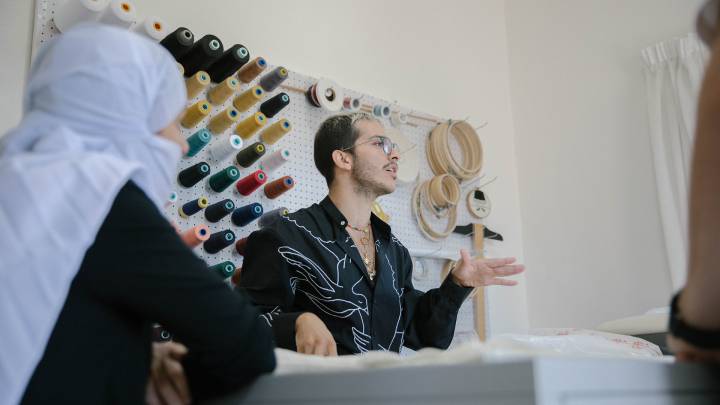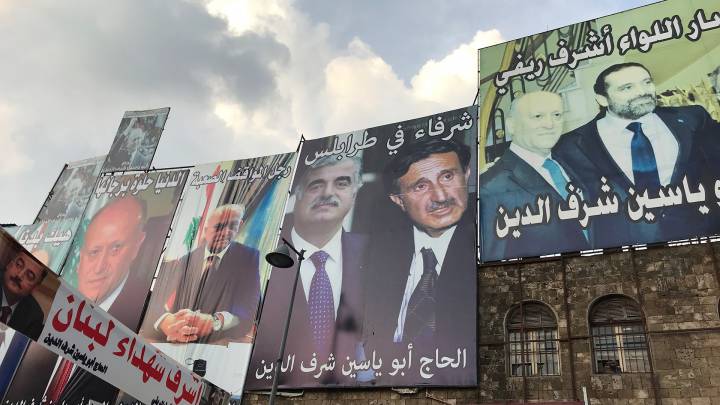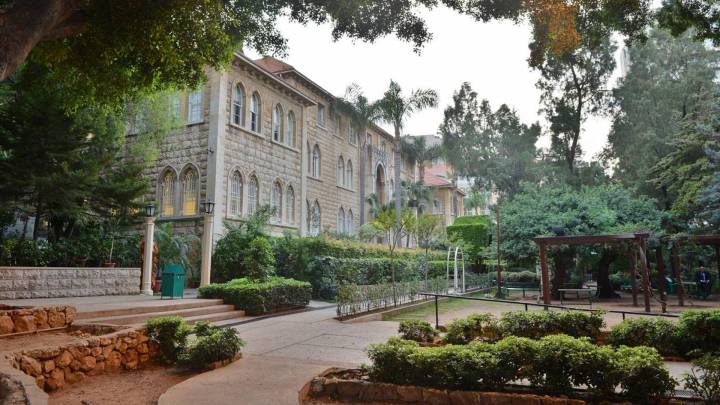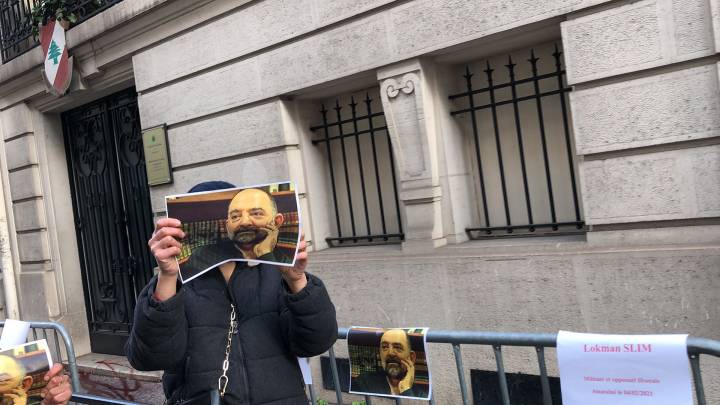Support for reforms in Lebanon is universal, but which reforms should be initiated and what stands in their way? Analysis by Maximilian Felsch.
The explosion on 4 August once again raises the question of a radical systemic change, which the Lebanese protest movement is loudly demanding. Of course, crises always offer opportunities to break up entrenched hierarchical structures. Pressure from both the international arena and from the street to tackle structural reforms can no longer be ignored by the country's leadership, who is witnessing its base of support crumbling. After all, almost everyone is affected by the financial and economic crisis, even those with good political connections.
It seems unlikely that international donors such as the International Monetary Fund (IMF) will be satisfied with cosmetic reforms in the banking and financial sector without remedying the root causes of the crisis. For years, the EU and United Nations Development Programme (UNDP) have supported the reform process in the areas of anti-corruption, digitisation and administrative modernisation in technical and financial terms, but the results have proved disillusioning. Critics complain that the financial support has ultimately helped to sure up the corrupt system.
Further tinkering with the formal administrative procedures will certainly not relieve the country out of its woes. The goal of the reforms must be to establish a sustainably functioning state based on the rule of law, democratically controlled and equipped with a monopoly on the use of force. This presupposes that three interconnected evils are effectively combated:
1. Party-clientelism
2. Corruption and waste in public administration
3. Parallel structures that are not subject to state control
Not bound by the confines of law and largely uncontrolled, party leaders can provide their surrogates with all kinds of benefits.
Party clientelism is Lebanon's central corruption network. The long-established party leaders have exclusive access to state resources and distribute these funds to loyal supporters, who in return repeatedly elect them.
Unbound by the confines of law and largely uncontrolled, party leaders can provide their surrogates with all kinds of benefits, such as public sector jobs, promotions, tax relief, legal aid and licenses of all kinds. Each party has a denominational orientation and therefore usually favors only members of its own religious community, whose interests it claims to represent as a collective. The confessional power-sharing system in Lebanon serves the logic of this model of rule.
The consequences of this party clientelism are devastating. Predominantly incompetent and often corrupt employees, for example, often work in public administration. Hiring is not based on merit and suitability of applicants, but rather follow the sectarian-balance doctrine and secures loyalty to the respective patrons at the party leadership.
Lebanon even has entire authorities that have no function at all.
Even the most important ministries employ people who do absolutely nothing. Lebanon even has entire authorities that have no function at all, such as the railway authority, which still employs hundreds of people, even though railroad operations were already suspended during the Civil War. In addition, there are numerous bus drivers employed who have not driven a bus in years.
Sectarian balancing and clientelism prevent the closure of redundant authorities, because any party that has such an authority under its control will demand the closure of other authorities as a condition, because otherwise the sectarian balance in the public sector would shift.
The sector that contributes most to the rampant public debt is the electricity sector. The power supply has been insufficient for decades, and daily power cuts are part of Lebanese daily life. Nevertheless, the electricity sector still costs billions, not only because electricity is generously subsidised, but also because many Lebanese do not pay any electricity bills at all. This is especially true in areas in southern Lebanon where Hezbollah and the Amal party act as advocates for the Shiite population and protect them from electricity billings.
Wasteful spending in the Lebanese system is enormous, but it only partly explains the debt rate, which is one of the highest in the world and eventually led to a default. The fact that the party leaders control the country's private banks as co-owners or supervisory boards also plays a significant role. This means that the more loans the state takes out with these banks on behalf of the party leaders controlling the government, the more interest income flows into their own pockets. Hence, there is little incentive with the political leadership to consolidate the state budget.
An all-encompassing solution to the power supply would most likely result in violent protests by the well-organised generator cartels.
Rival parties, which are normally all part of a grand coalition government, not only lack mutual trust and show little will to cooperate, but the authorities under their control also do not cooperate, hardly exchange any information, and shift responsibilities back and forth. In the public sector, one hand often does not know what the other is doing.
Another quirk of the Lebanese state system is the existence of numerous informal parallel structures that are not subject to democratic control. For example, a diesel generator mafia has established itself parallel to the state-owned electricity supplier Électricité du Liban, closing supply gaps under the protection of the party leaders.
An all-encompassing solution to the power supply would most likely result in violent protests by the well-organised generator cartels, with which no party would want to mess around. The same holds true for the water supply, which the water mafia controls during the summer months, utilising water pumped from illegal wells, while the water pipes of state utilities are dilapidated and leak in many places
Parallel structures can also be found in the security sector: In addition to the regular armed forces, Hezbollah, which is part of the government, maintains a private militia financed by Iran, which intervenes militarily on the side of the Ba'ath regime in neighboring Syria and claims the right to attack Israel. The possession of private weapons is also widespread in Lebanon, although it is officially prohibited.
Many regulations and laws can be interpreted more as non-binding recommendations.
In the social sector, sectarian parties are more active than the state. Many maintain clinics, schools and charitable institutions. In contrast to rights-based state social services, it is primarily loyal citizens who benefit from these private services. This support is not legally enforceable.
The obstacles to fundamental reforms of this system are enormous. First, the political and economic elite will do everything possible to maintain their ruling cartel in its basic form. They can rely on the loyalty of the administrative apparatus, including judges, generals and police chiefs, who all owe their appointments and promotions to their political leaders.
Secondly, it should not be underestimated that many Lebanese have become accustomed to obtaining special rights through political contacts and that many regulations and laws can be interpreted more as non-binding recommendations. Traffic regulations, smoking bans, and the obligation to wear seat belts in cars are all laid down in the law, but are not enforced by the police and are therefore ignored.
Even the designated Prime Minister and former Lebanese Ambassador in Berlin, Mustapha Adib, from whom reforms are expected, naturally made use of his connections to avoid the obligatory Covid-19 testing before departing for Lebanon in August.
Many Lebanese are proud of their useful political connections.
Like Adib, many Lebanese are proud of their useful political connections. And many Lebanese do not see this as a problem, but on the contrary, consider and appreciate political relations as a way to succeed in life. Knowing a cousin of Nabih Berri or Saad Hariri is something to be proud of and can help you to get along well in almost any circumstance.
The reform process is now to be led by Adib, who was charged by the party leaders with forming the government. Like his predecessor, Hassan Diab, Adib is a newcomer, does not belong to any party and has no particular achievements to point to. On the contrary, the embassy he headed in Berlin does not enjoy a good reputation among Lebanese in Germany.
Adib is essentially a puppet of the party leaders and completely dependent on their goodwill. Despite pressure from France to quickly form a reform-oriented government, Adib must take into account not only sectarian proportional representation, but also the balance of political camps and the special wishes of individual party leaders. He has little authority of his own.
The ruling cartel will resist structural reforms with all means. Powerful party leaders such as Nabih Berri, Walid Jumblatt, Hassan Nasrallah and Samir Geagea have not been held accountable for their war crimes during the Lebanese civil war (1975-1990). An end to their ruling cartel would not only cost them power, it could mean that they would, at last, have to stand trial for corruption and self-enrichment – currently a far-fetched scenario.
France and the United States play a key role in the reform process.
France and the United States play a key role in the reform process, using different approaches to influence developments in Lebanon. French President Emmanuel Macron presents himself as an advocate of the protest movement. He urges reforms, sets ultimatums and presents concrete lists of demands.
However, he is negotiating the reform process with party leaders who are hated by the demonstrators. This includes representatives of Hezbollah, which feels democratically legitimised by Macron. This realpolitik approach is also explained by the fact that the protest movement has not produced a leadership of its own that could participate in the negotiations.
The United States, on the other hand, considers Hezbollah an illegitimate terrorist organisation and an Iranian stooge. The USA is currently increasing pressure on the Hezbollah as well as on its Christian allies and the Amal Party with ever new sanctions, thus undermining France's mediation efforts.
That is why power structures in Lebanon may not change any time soon, despite the enormous state failure brought about by the ruling elite.
Maximilian Felsch is an Associate Professor at Haigazian University in Beirut, where he heads the Political Science Department.
